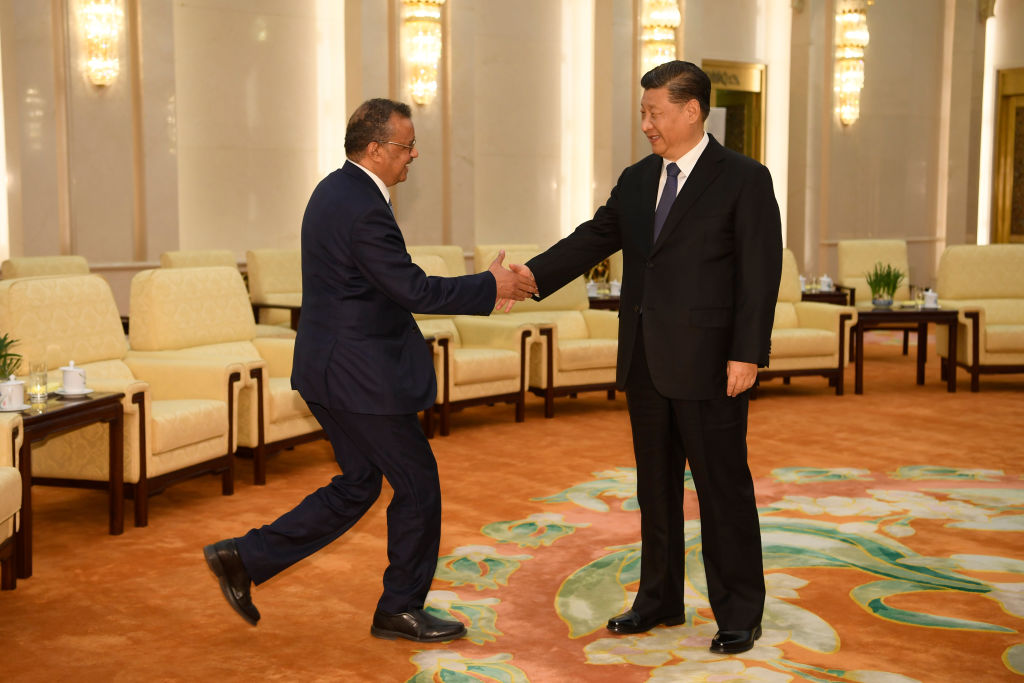Is China culpable for the spread of coronavirus?

With the containment of Covid-19 nowhere in sight, a war of words has broken out between the United States and China about the culpability of the latter for the worldwide spread of the deadly virus. US President Donald Trump fired the first salvo by repeatedly referring to the novel coronavirus as the ‘Chinese virus’. Although Trump has since promised to forgo that epithet, Secretary of State Mike Pompeo stepped into the void by insisting at the recent virtual meeting of the G7 that the virus be characterised as the ‘Wuhan virus’. His demand that the term be used in the joint statement normally issued after such a conclave resulted in the cancellation of the statement.
Other nations rejected the term as being unnecessarily divisive at a time when international cooperation is essential to combat Covid-19. However, Pompeo maintained that it was important to point out that the virus came from the Chinese city and that China’s government failed in its duty to warn the world about the dangers. Similarly, a UN Security Council statement on Covid-19 has been stymied by America’s insistence that China be singled out as the country of origin.
The Chinese have hit back at the US by indirectly accusing it, through obviously government-encouraged posts on social media, of being behind the manufacture and spread of the virus. Conspiracy theories originating from China have implied that US government agencies were testing the virus as a biological weapon for use in times of war.
Observers have also criticised World Health Organization, particularly its director-general, Tedros Adhanom Ghebreyesus, not only for underplaying the global threat posed by the virus but also for protecting China from blame for not having publicly acknowledged the imminent threat of the disease and the possibility of its global spread. They point to the fact that Tedros, in a statement on 23 January when the virus was raging in Wuhan and spreading to other parts of China, declared that ‘China has taken measures it believes appropriate to contain the spread of coronavirus in Wuhan and other cities. We hope that they will be both effective and short in their duration. For the moment, WHO does not recommend any broader restrictions on travel or trade.’
That statement clearly implied that it was safe to travel to China and to permit Chinese nationals to travel abroad at a time when infections and deaths were multiplying and when it was the duty of the WHO to warn the global community of dangers of unrestricted travel to and from China. Such a warning could have saved thousands of lives. Some critics have extrapolated from the WHO’s decision not to pin blame on China for the virus, and especially for its failure to report it quickly, that the organisation was trying to shield Beijing from blame because it was a major contributor to the WHO’s budget at a time when the US and Europe had been cutting down their contributions.
The argument about the culpability of China’s autocratic regime gained additional strength with the revelation that eight Chinese doctors who acted as whistleblowers about the virus were summarily discredited by the Chinese government as rumour-mongers. One of the eight doctors, Li Wenliang, unfortunately succumbed to the disease soon after Beijing’s effort to discredit him and his colleagues.
The sequence of events makes plain that the Chinese regime is primarily responsible for hiding the outbreak of the coronavirus in Wuhan and delaying publicising it and, consequently, for the great havoc it has caused in the world. No amount of whataboutery can hide this fact.
However, the US tactic of public name-calling of China on this issue isn’t simply based on altruistic considerations; it’s also motivated by strategic and political factors. Washington is especially worried that its inability to control the virus and find antidotes to it could not only lead to loss of face but also in the long run irretrievably erode its position as the pre-eminent global power with the capacity to set the international security and economic agendas.
Several American commentators have made clear that the US’s failure to act quickly and lead the world in finding a solution to the crisis could in the long run result in a reversal in the global pecking order with the US losing its position to China. Explicitly laying the blame on China in international forums for its duplicity and complicity in spreading the global pandemic could do much to put China in the dock and protect America’s position in that pecking order.
But, these political and strategic considerations apart, it cannot be denied that China must be held responsible for this catastrophe. The very least it should do is compensate the rest of the world for the economic losses incurred. Furthermore, Tedros should not be absolved of blame for his part in facilitating, whether deliberately or unwittingly, the spread of Chinese falsehoods. He must be forced to resign if he is unwilling to step down voluntarily.
Only drastic measures like these will send the signal to rogue states and to international public functionaries that the global community will no longer tolerate such irresponsible actions and that those committing them will be held accountable and made to pay for their sins.